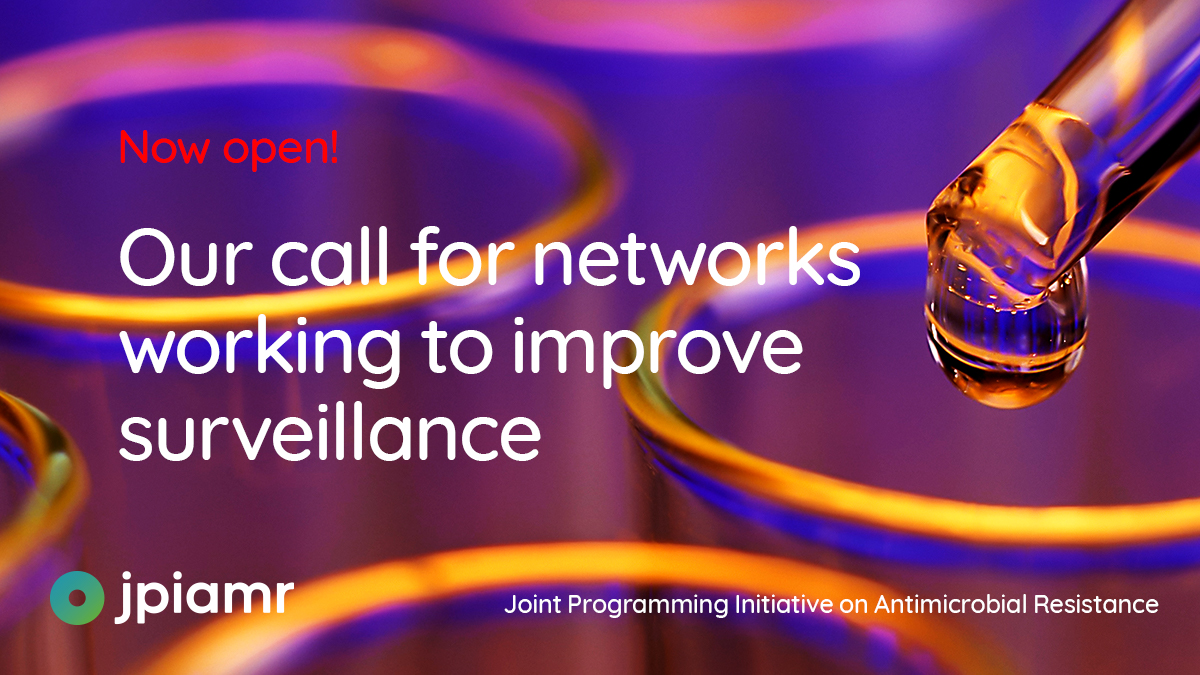JPIAMR recognises a need to reinforce alignment of AMR research. To promote this, the JPIAMR will establish a Virtual Research Institute in AMR – a global network connecting research performing organisations, including institutes, centres, and infrastructures.
In partnership with ten member countries; Canada, Egypt, France, Germany, Italy, Netherlands, Norway, Spain, Sweden, and the United Kingdom, JPIAMR is launching the 8th joint call for transnational Networks. The total budget of the call is approximately 1.1 million Euro. This Network Call “Building the Foundation of the JPIAMR Virtual Research Institute” aims to identify research community needs and develop ideas to form the foundation for the JPIAMR-VRI. Networks of motivated groups should develop catalytic ideas and strategic plans to help bring the JPIAMR-VRI to life!
Up to 22 Networks will be funded with up to €50 000 each coordinator to connect experts from research performing organisations and establish expertise clusters in the AMR community. The formation of larger, multi-coordinator Networks is possible according to national rules. This is an ERA-NET JPI-EC-AMR additional activity. Note that JPIAMR Network calls do not fund research projects.
Call procedure
The JPIAMR-VRI Network Call has a one-step procedure. The final funding decision will be announced in October / November 2018.
Deadline
The proposal submission deadline is July 4th, 2018, (17.00 CET).
JPIAMR-VRI Network Call Secretariat and National Points of Contact
The JPIAMR-VRI Network Call Secretariat is hosted by the Italian Ministry of Health, It-MoH.
All questions on the pre-announcement should be sent to: secretariat.jpiamr@vr.se
For more detailed information on the JPIAMR-VRI, please see here.
To download PIAMR-VRI Network Call folder, please click here.
Download the press release in English here: Press Release_JPIAMR-VRI
Download the press release in French here: JPIAMR-IRV_Press Release_FRENCH
More detailed information to be found here: JPIAMR 2018 Network Call: Building the foundation of the JPIAMR-VRI
About
The Joint Programming Initiative on Antimicrobial Resistance, JPIAMR, coordinates national programmes, funding and supports collaborative action for filling knowledge gaps on AMR with a one health approach. Today, 27 nations, from four continents, are members of JPIAMR. More than 300 research groups have received funding from JPIAMR. Since its launch in 2011 JPIAMR has coordinated total budget of 65 million Euros. The JPIAMR Secretariat is hosted by the Swedish Research Council.





